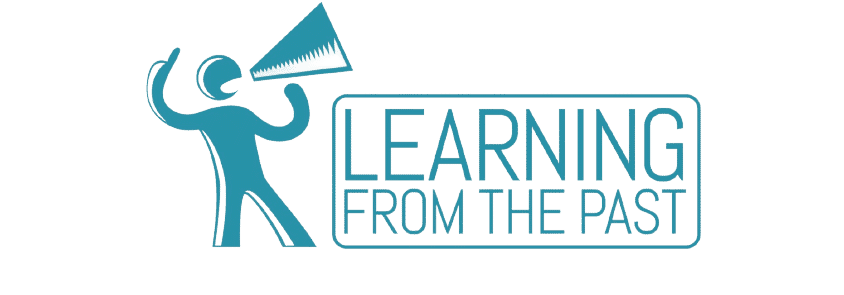It is easy to be cynical about humanity’s ability to benefit from experience, but this project offers examples of individual and collective attempts to do so. Perhaps we can draw hope and inspiration from those initiatives of yesteryear as we shape our tomorrow.
Dr Corinna Peniston-Bird, Learning from the Past consultant historian,
History Department, Lancaster University


Learning From The Past Exhibition
Learning from the Past
(so that we are not condemned to repeat it)


'What is Peace?' by Sofia Westholt, youth volunteer from Germany, LFTP Poland
Learning from the Past (2018-21) is an Erasmus+ funded project, led by Global Link in Lancaster, UK with seven partner organisations from across Europe.
Heritage volunteers uncovered local histories relating to peace and internationalism in the years following the First World War. They documented their findings in an online, interactive map.
The stories from the map were then shared in workshops with young people in each partner country who responded to the themes and issues raised through creative arts.
This exhibition brings some of these stories and artwork together.
Hear more about Learning from the Past:

The legacy of the First World War
The First World War (1914-1918) was a global war. Men and women travelled across the world to serve on land, sea and air, in combat and behind the lines. For many people, it would have been their first experience of life beyond their home community and their first encounter with different places, peoples and languages. The war also uprooted vast numbers of civilians, displaced by the fighting or the redrawing of country borders brought about by the conflict.
The years following the war continued to see great social and political change across Europe, including rapid urbanisation, advances in communication technology, widening transport networks, increased popular political engagement and a greater number of women joining the workforce. In many ways, the world opened up for Europeans in new and exciting ways. But it was also a period of very uneven change: not everyone accessed these new opportunities so easily. The 1920s and 1930s also saw a huge economic recession and the rise of political extremism.

Courtesy of Northern Friends Peace Board
While nationalism increased in many parts of Europe, there were also many people who looked outward, rather than inward, towards greater global cooperation. Countless Europeans worked actively for peace, seeking ways to prevent the horrors of the First World War from being repeated and to resist extremism and hatred. These are the stories that we uncovered on our project.
History tends to focus on the ultimate failure of peace bodies like the League of Nations and the fact that Europe did return to war in 1939. But this exhibition highlights a lesser-known history – of ordinary people’s extraordinary efforts to promote peace, internationalism and social justice, sometimes in very difficult circumstances. Their stories have a powerful legacy for us today.
To see all the stories documented on our project, check out our Learning from the Past digital map, where they appear in the various project languages, including English.
Learning from the Past Exhibition
This exhibition presents histories of women and men, children and adults, individuals and organisations from across Europe who worked for peace, promoted international cooperation and resisted political extremism during the interwar years.
You will also see an exciting range of artwork - from theatre to collage to photography - which expresses young people’s responses to these stories today.
Finally, during this United Nations (UN) 2021 International Year of Peace and Trust, you can see messages to the UN from our local communities across Europe – and YOU will be invited to consider what we can ‘learn from the past’ to build a better future.
'Bond' by Lea Busch-Szabó,
student from Cristuru Secuiesc, Transylvania,
LFTP Romania
"Most of the time, wars are about territories, skin colour, religion, principles - and they always forget that we are all the same with similar feelings, fears and faith". Lea Busch-Szabó

Learning from the Past project partners:
- Anthropolis, Budapest, Hungary
- Asociația de Tineri din Ardeal, Cristuru Secuiesc, Romania
- Fondazione Luigi Micheletti, Brescia, Italy
- Global Link, Lancaster, UK
- Jugendkulturarbeit, Oldenburg, Germany
- MI-Gen, Lancaster, UK
- Stowarzyszenie Rozwoju I Integracji Młodzieży, Kraków, Poland
- Zavod za mladino in šport Trbovlje (ZMŠT), Trbovlje, Slovenia


